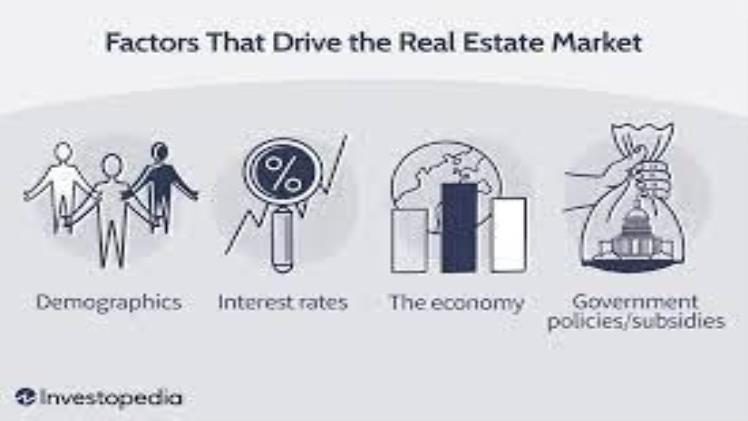Real Estate Economics

Real estate economics focuses on the processes that underlie buying, selling, building, renting and financing of property. Additionally, it examines how economic and social conditions influence the performance of this industry.
Real estate markets are unique among other types of markets due to their heterogeneity and illiquidity. This presents both buyers and sellers with unique challenges.
Heterogeneity: When looking at real estate markets, the supply is made up of many distinct properties that cannot be compared. Each unit differs in location, structure and financing – leading to pricing issues, search costs issues and information asymmetry issues.
Implications for Market Equilibrium
Real estate markets differ from other investments due to the lengthy time it takes for assets to exchange hands. This makes it harder for new entrants to break into the market and existing owners to sell off their assets, making real estate investments more volatile than other types of investments.
Volatility makes it difficult for buyers to adjust to price changes on the market quickly. This can cause prices to shift drastically, leading to a lack of liquidity in the marketplace and slow transactions.
Uncertainty creates uncertainty in the economy, as investors struggle to predict when and how real estate values will rise or fall, potentially leading to a slowdown of activity.
Investing in real estate is a long-term, high-risk venture. Therefore, it is essential to comprehend the economic metrics which can indicate whether your investment will perform well or not.
These metrics may include population growth and migration rates, the number of people living in a region, unemployment levels, home ownership rates, and many others.
visit for multiple topics news: Apkmirror4u and buzzfeedquiz
They can also assist you in determining the value of your property, which could help you make a more informed decision regarding whether to purchase or sell.
Real estate research often relies on price-to-rent ratios and capitalization rates, which indicate the profit an investor can expect from an asset. Cap rates are sometimes affected by economic forecasts but may also be affected by foreign capital flows.
Real estate is a highly volatile sector that can be affected by macroeconomic factors like interest rates, inflation and recessions. Therefore, it’s essential to be able to detect these trends and take appropriate measures in order to minimize your exposure to risks when investing in real estate during times of economic volatility.
The real estate industry begins with raw land and works through the process of getting it entitlemented, built and operated until stabilization (typically 95% occupied). At that point, it can be sold or repurposed for new uses. Furthermore, this industry plays a vital role in local economies by employing workers who create jobs while providing tax revenue to government. Furthermore, ancillary service firms provide supplies and services needed for operating and maintaining properties such as maintenance companies, contractors, building supply companies and professional service workers.